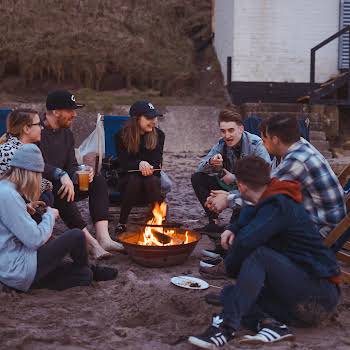By Bill O'Sullivan
29th Apr 2014
29th Apr 2014
grumpy cat
I first learnt about apologies from my philosophy teacher in school, who was also one of my good friend’s mothers. I’d been to her house for sleepovers a few times. I knew she did aerobics in the morning, drank herbal tea and didn’t take milk with her cereal. She’d broken up with my friend’s dad, they were going through a divorce and it didn’t sound amicable from what my friend told me. One day in class my friend Fano arrived in late, for which he immediately began apologizing profusely. She stopped him with a quick ?Don’t say sorry, it’s a lie.? She explained that it was obvious that he had calculated he would be late, and hadn’t felt sorry then, so why apologise now – it was part of the calculated risk. He wasn’t ‘sorry?, he had planned to say what he knew would allow him to do as he pleased and get away with it. Even having to rewrite it now I can feel myself developing a feint twitch and cross-eyes. The idea that a simple apology could have so many layers of meaning was far more complex than I had known was possible at 17.
Apologies are weird beasts because they are so relative to their context and because they can be traced back to our upbringing. I’ve always considered myself a brilliant groveler and put this down to the fact that my parents drilled into me importance of admitting you’re wrong. I also thought I was good at it because I seemed to get into trouble an awful lot, so an exit strategy was in order. But being a good apologizer exposes you to criticism in the same way not being a good apologizer does. In fact, sometimes more.
I have had my fair share of conflictual relationships. I often played the part of the perpetrator opposite a person who struggled to say sorry, thereby ending up in the role of chief apologizer also. Apologies in a fraught relationship where fights are recurring and endlessly ongoing, means that every apology you express not only gets watered down to a mere nothingness, but it also ends up adding further fuel to fire. If you continue to do wrong in the other person’s eyes, and you continue to also take on the blame without ever succeeding at getting the other person to see your side or take on their fair share of the blame, it turns into a general weakening of the relationship. You back yourselves both into a corner, where you (the apologizer) are disingenuous in the other person’s eyes, whilst they cement their conviction in your wrong-doing. It turns into a frantic ping-pong of rejected apologies, whilst the whole show goes up in flames. Aside from the fact that the experience led me to be very wary of people who are incapable of saying sorry, it has also made me develop a policy of non-engagement when I enter into these sorts of binds. Just saying nothing and letting things simmer seems, on the whole, a far better solution.
A form of apology I learnt through growing up into some sub-species of adult is the ?I regret?? alternative. This is the one you reserve for your landlord or a professional situation, where paying respect is necessary, but incriminating yourself with a ‘sorry? could be rather risky. ?I regret that our party upset you, but there is no clause in our lease that allows you to evict us without two previous warnings? for example… I learnt really quickly how to unleash this form of apology after finding myself in unpleasant situations where my overzealous ?let’s all be friends – I’m sorry!? got me into really hot water. It’s hard to know whether this type of apology is acceptable from a friend, boyfriend or parent, but having been educated in the school of hard-apologies, I’m inclined to accept this as an apology – it’s the ?I’m sorry for how you feel, even though I don’t think I did anything wrong? kind. This to me is enough. That you don’t want me to feel bad, sad or angry will do.
When you’re accused of something, the other person is rarely 100 % convinced about whether they are in the right, or whether they’re being fair. The moment you apologise, however, you not only confirm the other person’s suspicions, but often magnify them. Maybe I’m experiencing a backlash towards my previously loose style of apologizing – I admit I feel like I’ve been put upon in the past and taken the blame when it wasn’t mine for the taking. I felt guilty and in the wrong a lot of the time. When the phone rings I panic and wonder what I’ve done wrong – I suffer from a permanently guilty conscience. Funnily I’m coming round to the belief that my philosophy teacher was right – apologies are always about something else. In my case they’re a desperate last resort. Unsure what to do, worried and scared by someone’s upset with me, insecure and uncertain about my own ?right? to contest something. Apologizing became to me a form of damage control – except it had the opposite effect. It let’s you eschew responsibility whilst also normalizing your wrong-doing to yourself and those around you. It foments more of the same behavior.
I accept apologies in all their forms, and even without them being verbalized. But I’ve entered a phase of disciplined and restrained apologies, both in order to stop myself from doing anything I may later need to apologise for, and in order to stand up for myself. A form of self-preservation, of giving up on my guilty conscience and all the mea culpa I take on so easily. And so far I’m not sorry.
Roisin Agnew @Roxeenna























